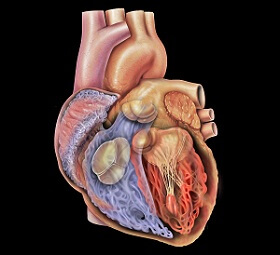Transcatheter Aortic Valve Implantation: Daughter Wins Compensation After Proving the Death of Her Father Was Avoidable
Transcatheter Aortic Valve Implantation: Daughter Wins Compensation After Proving the Death of Her Father Was Avoidable
After fighting to prove that her father’s death was avoidable, the High Court in London has awarded Gabriele Shaw thousands of pounds in compensation. Mrs Shaw’s father, William Ewan, bled to death during an experimental key-hole procedure.
Leicester’s Glenfield Hospital after it was discovered he was suffering from heart problems. He was told he needed to undergo a key-hole procedure to replace a heart valve. The operation was to be carried out by a surgical team led by world-renowned surgeon Dr Jan Kovac.

The procedure, known as transcatheter aortic valve implantation (TAVI), is most commonly carried out under general anesthetic – something in itself that can prove to be a risk for older patients such as Mr Ewan. A catheter (a hollow tube) is inserted into an artery either in the groin or under the collarbone. It is then passed into the heart and positioned within the opening of the aortic valve. The balloon, which rests at the end of the catheter, is then inflated gently and this makes room for the new tissue valve, which is then placed in position. Depending on the type of valve being inserted, it will either expand by itself or the balloon will be used to expand it manually. The balloon is then deflated and the catheter removed.
Even now, TAVI is a new procedure and its long-term benefits remain unknown. However, if performed successfully, patients will be helped to sit out of bed on the day after the operation. Many people are able to leave hospital and return home in around a week, but a total recovery period of 2 – 3 months is advised.
However, it was not explained to Mr Ewan, or his family. that the procedure was still in its “infancy” and had not yet received full official approval for “wider public use”.
Denied of the right to choose alternative medical treatment
Arguing in the High Court, Mrs Shaw said that the risks of the procedure had not been properly explained, nor was it ever described as “experimental”. She stated her father had not been given detailed information on any alternative treatments, including open-heart surgery – the more established, but more invasive option – or just “doing nothing”. The Court heard how Mr Ewan’s heart problems were only “moderate” and without any treatment, he could have hoped to live for another five years.
Neither Dr Kovac, the surgeon responsible for Mr Ewan’s treatment, nor the University Hospitals of Leicester NHS Trust, admitted liability. However, the Court deemed that Mr Ewan had lost the right to choose and fully consent to his treatment.
Hearing the two-day case, Mr Justice Warby said that while liability hadn’t been admitted, the Trust had “submitted to judgment”. He awarded Mrs Shaw £13,686 in damages to compensate for her father’s pain and suffering and for expenses, including the funeral costs.
Making a medical negligence claim
You are entitled to expect a certain standard of treatment from those providing medical assistance to you. If this treatment falls below standard you may be entitled to recover the cost of the private medical treatment needed to correct the failings on the part of those originally treating you. Our goal at IBB Solicitors is to obtain justice for victims of the negligence by others, by securing compensation that reflects their pain and suffering, as well as related financial losses including loss of earnings, treatment costs and specialist care costs.If you believe that you have suffered harm as a result of a delayed or misdiagnosis, or from medical negligence resulting from the actions of your GP, consultant, surgeon, nurse, dentist or other health care provider contact our medical negligence solicitors today. We offer a No-Win No-Fee Agreement so there is no financial risk involved if you are not successful. To discuss your case or to make an appointment please contact us on 01895 207835 or 01895 207295. Alternatively, please email us at PI@ibblaw.co.uk or complete our online form.
CONTACT OUR NO-WIN NO-FEE SOLICITORS FOR A FREE CONSULTATION
